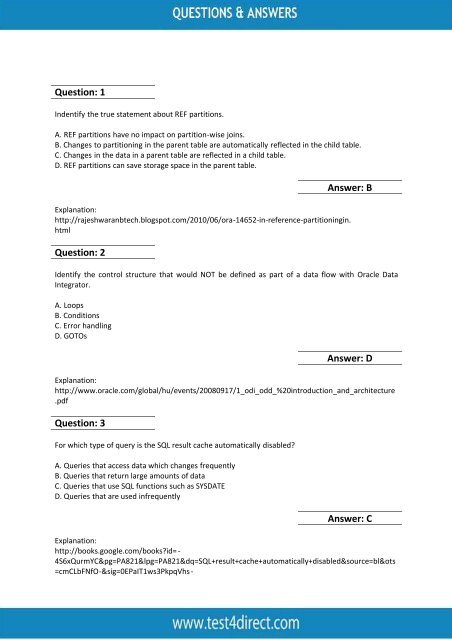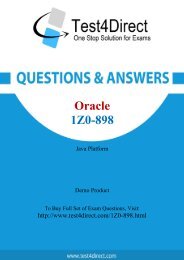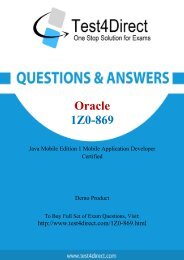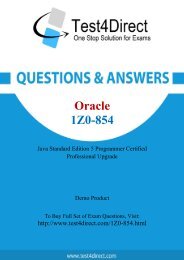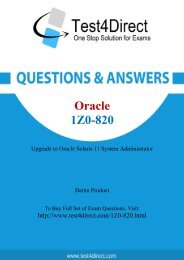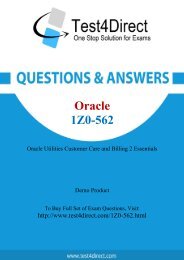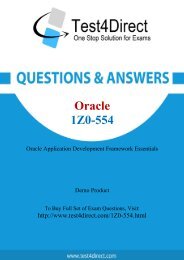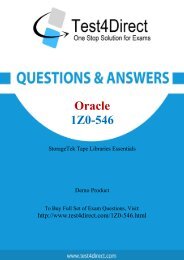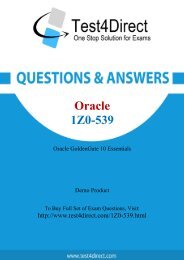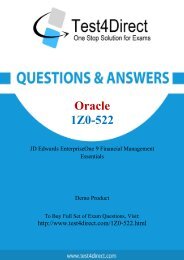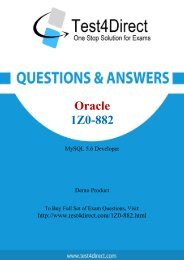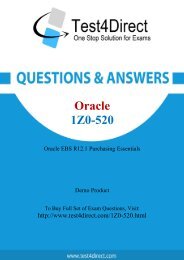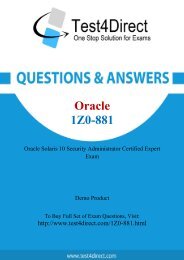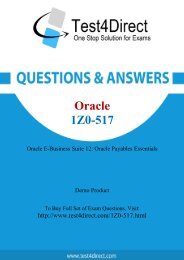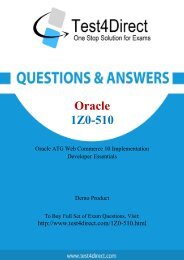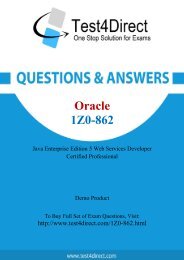Here you get free 1Z0-515 Exam BrainDumps
Test4Direct provides latest PDF questions of Oracle 1Z0-515 exam. You have an opportunity to pass the Oracle 1Z0-515 exam in one go. Test4Direct is most accurate source to prepare Oracle 1Z0-515 exam as your success will become site’s responsibility after purchasing 1Z0-515 exam product. There are also lots of discounts and promotion offers that you can avail. Let’s try a free demo http://www.test4direct.com/1Z0-515.html
Test4Direct provides latest PDF questions of Oracle 1Z0-515 exam. You have an opportunity to pass the Oracle 1Z0-515 exam in one go. Test4Direct is most accurate source to prepare Oracle 1Z0-515 exam as your success will become site’s responsibility after purchasing 1Z0-515 exam product. There are also lots of discounts and promotion offers that you can avail. Let’s try a free demo http://www.test4direct.com/1Z0-515.html
Create successful ePaper yourself
Turn your PDF publications into a flip-book with our unique Google optimized e-Paper software.
Question: 1<br />
Indentify the true statement about REF partitions.<br />
A. REF partitions have no impact on partition-wise joins.<br />
B. Changes to partitioning in the parent table are automatically reflected in the child table.<br />
C. Changes in the data in a parent table are reflected in a child table.<br />
D. REF partitions can save storage space in the parent table.<br />
Question: 2<br />
Question: 3<br />
Answer: B<br />
Explanation:<br />
http://rajeshwaranbtech.blogspot.com/2010/06/ora-14652-in-reference-partitioningin.<br />
html<br />
Identify the control structure that would NOT be defined as part of a data flow with Oracle Data<br />
Integrator.<br />
A. Loops<br />
B. Conditions<br />
C. Error handling<br />
D. GOTOs<br />
Answer: D<br />
Explanation:<br />
http://www.oracle.com/global/hu/events/20080917/1_odi_odd_%20introduction_and_architecture<br />
.pdf<br />
For which type of query is the SQL result cache automatically disabled?<br />
A. Queries that access data which changes frequently<br />
B. Queries that return large amounts of data<br />
C. Queries that use SQL functions such as SYSDATE<br />
D. Queries that are used infrequently<br />
Answer: C<br />
Explanation:<br />
http://books.google.com/books?id= -<br />
4S6xQurmYC&pg=PA821&lpg=PA821&dq=SQL+result+cache+automatically+disabled&source=bl&ots<br />
=cmCLbFNfO-&sig=0EPaIT1ws3PkpqVhs-


